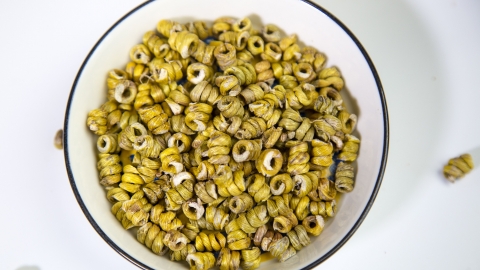Which Three Types of People Should Absolutely Avoid Consuming Dendrobium (Iron-Leaf Stone斛)
Generally speaking, there is no such thing as the claim that "three types of people must absolutely avoid consuming Dendrobium (Iron皮 Stone斛)." However, individuals allergic to Dendrobium, those with colds and fever, those with spleen and stomach deficiency-cold, patients with damp-warmth syndrome that has not yet transformed into dryness, and children are not advised to consume Dendrobium. Detailed explanations are as follows:
1. Individuals allergic to Dendrobium: After consuming Dendrobium, the immune system of these individuals may mistakenly identify certain components in Dendrobium, triggering an allergic reaction. Common symptoms include skin itching, rash, urticaria, and in severe cases, symptoms such as laryngeal edema and difficulty breathing may occur, endangering life. Therefore, consumption must be strictly avoided.
2. Individuals with colds and fever: During a cold or fever, the body needs to expel external pathogens to recover. Dendrobium is slightly cold in nature and has nourishing properties. Consuming it at this time may cause the pathogenic factors to remain in the body, making them difficult to eliminate, thereby worsening the fever symptoms, prolonging the course of the illness, and being detrimental to recovery.

3. Individuals with spleen and stomach deficiency-cold: Those with spleen and stomach deficiency-cold often experience symptoms such as abdominal pain, diarrhea, cold intolerance, poor appetite, and loose stools. Dendrobium is slightly cold in nature, and consuming it may further impair the yang energy of the spleen and stomach, increasing internal coldness, exacerbating the above symptoms, affecting the normal digestive and absorptive functions of the spleen and stomach, and being detrimental to recovery.
4. Patients with damp-warmth syndrome that has not yet transformed into dryness: When damp-warmth syndrome has not yet transformed into dryness, the body usually has excessive dampness, often manifested as bitter taste in the mouth, sticky mouth feel, yellow and greasy tongue coating, abdominal distension, and dark yellow urine. Dendrobium has a certain degree of greasiness; consuming it at this time may increase internal dampness, making it difficult to eliminate damp pathogens, thus being unfavorable to the relief and recovery of the condition.
5. Children: Children's organs are not yet fully developed, and their spleen and stomach functions and metabolic capacities are relatively weak. Although Dendrobium has some nourishing effects, children's spleen and stomach may not easily digest and absorb its components. Excessive consumption may easily cause gastrointestinal discomfort such as abdominal distension and diarrhea. Therefore, it is generally not recommended for children to consume it casually. If necessary, it should be taken under the guidance of a professional.
The above-mentioned groups should clearly understand their contraindications and avoid physical discomfort caused by consuming Dendrobium. Other individuals who wish to consume Dendrobium should choose an appropriate amount according to their own constitution and preferably use it under the guidance of professionals to ensure safety.




